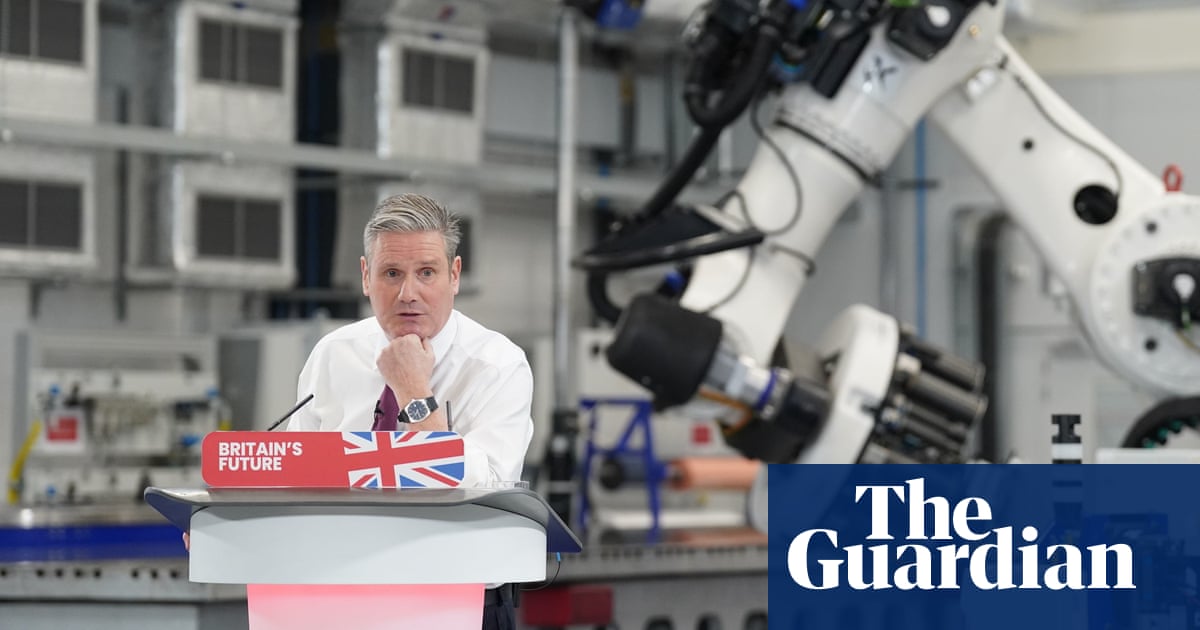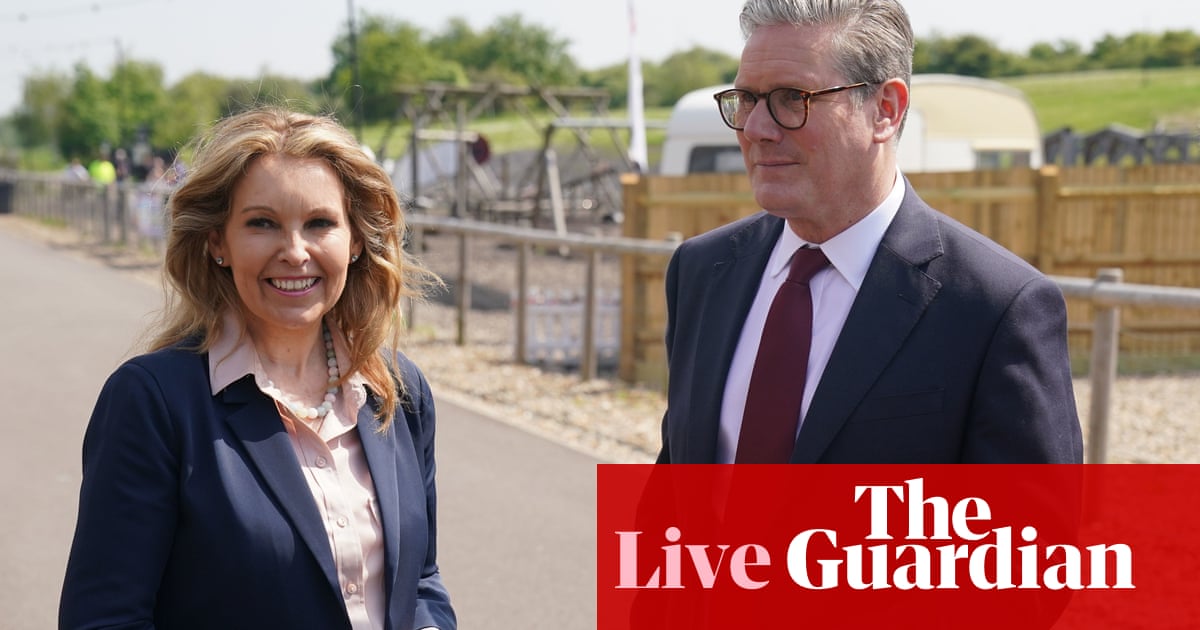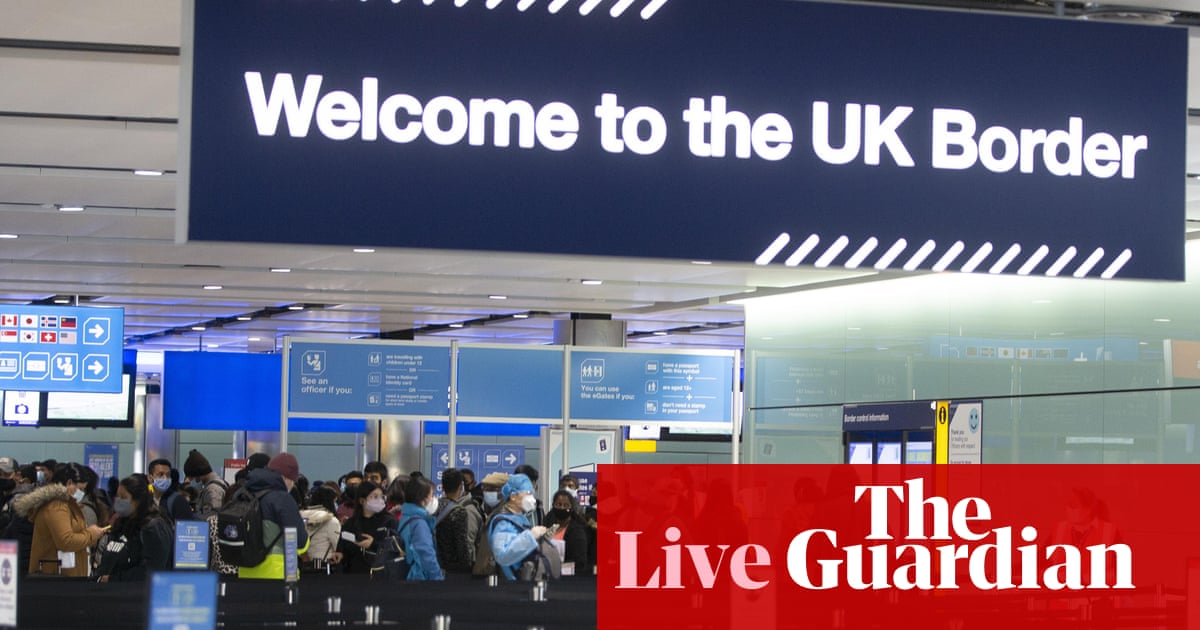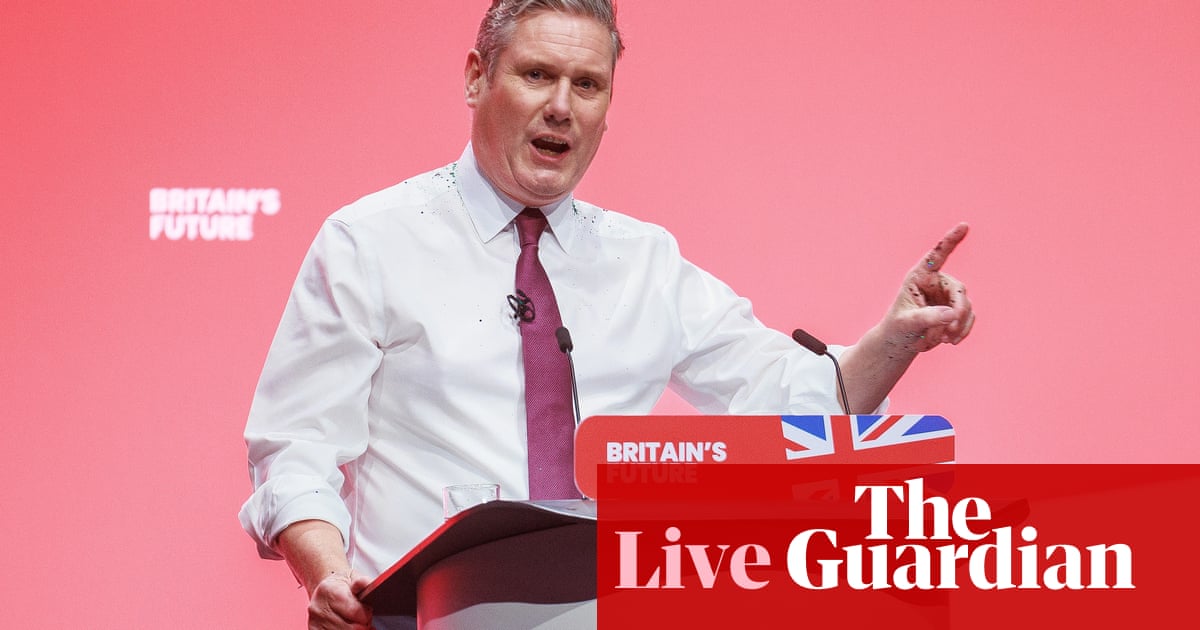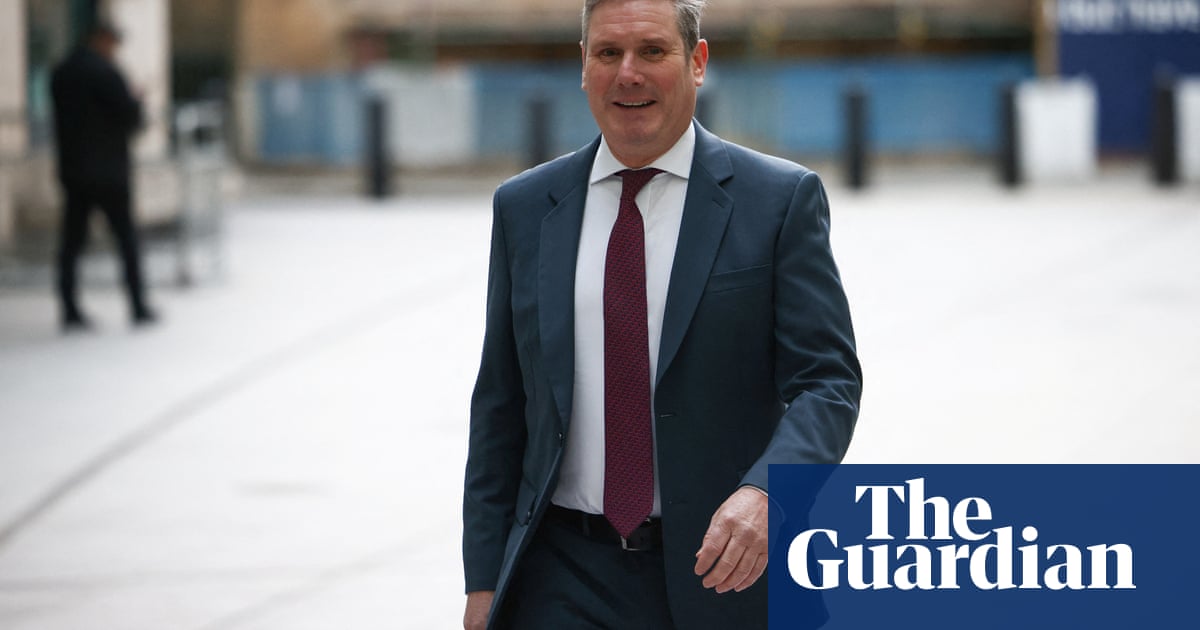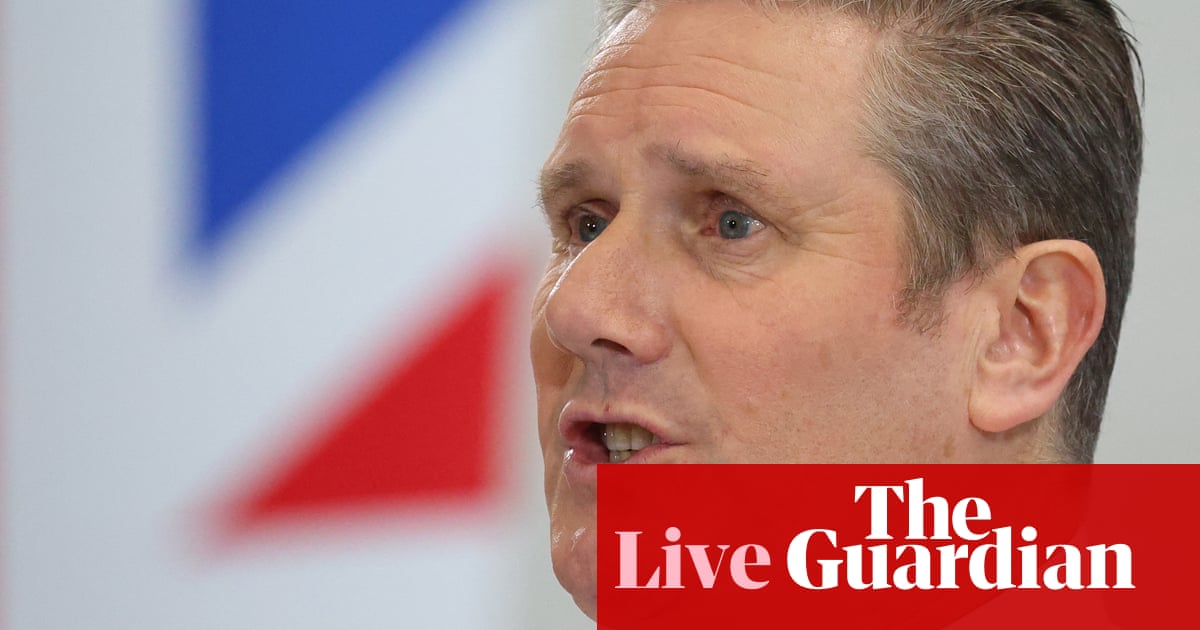
Starmer says Labour will "meet fire with fire" if Tories resort to dirty tactics during election
Keir Starmer has said that Labour will meet “fire with fire” if the Conservatives resort to dirty tactics during the general election campaign.
In an interview with Sky’s Beth Rigby, asked if he would be “going high” or “going low” in the election campaign, Starmer replied:
I’ve made my case, a positive case this morning for hope, for change. I don’t think the Tories can make that argument.
They will go low. What I’m saying is if they want to go with fire into this election, we will meet their fire with fire.
He also argued that the this approach was justified because “the stakes at this election are so high for working people”.
There is almost nothing, outside the libel laws, to regulate what political parties can say about each other during election campaigns. The Electoral Commission investigates spending on campaigns, not their content, and the Advertising Standards Authority does not rule on political adverts.
The Conservatives and Labour have both been accused of underhand methods in their campaigning. Rishi Sunak has repeatedly been criticised for saying things that are misleading or untrue – including on the asylum backlog, only this week – and last year Labour outraged some of its supporters by running an advert claiming Sunak did not favour jailing child abusers.
Afternoon summary
Rishi Sunak has given his strongest indication yet that he will not call a general election until the second half of 2024, puncturing Labour hopes that it could come as early as the spring.
Keir Starmer has ruled out breaking Labour’s fiscal rules to meet its green investment targets if it wins the election this year, in the clearest sign yet that the party is willing to scale back one of its headline policies in the face of Conservative attacks.
Starmer says Sunak should call election now because he does not have personal mandate to govern
And here are some more lines from the broadcast interviews that Keir Starmer gave after his speech and Q&A this morning. (They were conducted earlier, but with a 5pm embargo.)
Starmer said Rishi Sunak should call an election now because he did not have a mandate to govern. When the BBC’s Chris Mason put it to him that the PM did not need to call an election now, because of the mandate from the general election, Starmer said Sunak was the third PM since 2019 and did not have a personal mandate to govern.
Starmer confirmed that Labour is no longer committed to making ministers wait at least five years between leaving office and taking a job lobbying their old department. Labour originally proposed a five-year cooling off period but, as Kiran Stacey revealed this week, that time period may now be shortened. Asked if he was still committed to five years, Starmer said he was “fundamentally committed to clearing up politics” but that the full detail of this plan was still being considered.
Starmer said he would be asking the government “pretty soon” to allow Labour to start talks with civil servants about its programme for government. But it was up to Sunak to authorise those talks, he said. In a report out today, the Institute for Government thinktank says those talks should have already started.
Starmer confirms Labour would reverse any inheritance tax cut introduced by Tories
During his Q&A this morning Keir Starmer said he was “fundamentally opposed” to cutting inheritance tax. (See 10.52am.) In an interview with Sky, Starmer confirmed that, if the Tories went ahead and implemented a cut, a Labour government would reverse it. He said:
I’d oppose [an inheritance tax cut], it wouldn’t be what we would do, and of course we would change that if we got the opportunity to do so.
Starmer rules out putting up taxes to fund Labour"s £28bn green investment programme
Keir Starmer has ruled out raising taxes to fund Labour’s green investment programme.
In a new release issued by CCHQ, Jeremy Hunt, the chancellor, claimed earlier this afternoon that Starmer’s comments on the topic during his Q&A this morning implied tax rises were likely for this purpose. (See 3.10pm.)
In an interview with Chris Mason, the BBC’s political editor, Starmer was asked if he would water down the plan to spend £28bn a year on green investment. Starmer said he was “absolutely committed” to his mission of achieving zero-carbon electricity by 2030. (See 11.03am and 2.30pm.)
Asked if he would put up taxes to pay for that, he replied:
No, we’ve never suggested that. That isn’t going to happen. That’s a misconceived Tory attack. But frankly, tax attacks from the Tories, who’ve just put taxes up to the highest level since the war, I think – water off a duck’s back, as far as I’m concerned.
Starmer says Labour will "meet fire with fire" if Tories resort to dirty tactics during election
Keir Starmer has said that Labour will meet “fire with fire” if the Conservatives resort to dirty tactics during the general election campaign.
In an interview with Sky’s Beth Rigby, asked if he would be “going high” or “going low” in the election campaign, Starmer replied:
I’ve made my case, a positive case this morning for hope, for change. I don’t think the Tories can make that argument.
They will go low. What I’m saying is if they want to go with fire into this election, we will meet their fire with fire.
He also argued that the this approach was justified because “the stakes at this election are so high for working people”.
There is almost nothing, outside the libel laws, to regulate what political parties can say about each other during election campaigns. The Electoral Commission investigates spending on campaigns, not their content, and the Advertising Standards Authority does not rule on political adverts.
The Conservatives and Labour have both been accused of underhand methods in their campaigning. Rishi Sunak has repeatedly been criticised for saying things that are misleading or untrue – including on the asylum backlog, only this week – and last year Labour outraged some of its supporters by running an advert claiming Sunak did not favour jailing child abusers.
Philip Collins, who wrote speeches for Tony Blair when Blair was PM and who has written speeches for Keir Starmer in the past, has published an analysis of Starmer’s speech today on his Substack blog. Here is Collins’ take on the “politics that treads a little lighter” line. (See 3.50pm.)
There was a passage in Starmer’s conference speech in which he made this point. With a distant echo of WB Yeats he talked about treading more lightly and here he does so again. It’s the best phrase in the speech and the most question-begging idea. It might be quoted back when Labour proves to be quite interventionist. It demands a whole speech of its own, to be worked out. Does it mean any more than that a Labour [government] will feel different, will be less attention-seeking and more intent on achievement? Perhaps not, but it still sounds like exactly the sort of (welcome) sentiment that almost nobody in the Labour party can live up to.
A reader asks:
I know that Labour appear to be carrying out the “Ming vase” movement and are comfortably ahead in the polls. My question is how does Starmer’s personal polling compare with those that’ve been subsequently elected a year later?
Ipsos publishes a table in its political monitor every month showing how Keir Starmer’s ratings compare with the ratings of other opposition leaders at the same point in their tenure. Here is the latest one.
What Starmer said about wanting to make politics calmer and less attention-grabbing
The full text of Keir Starmer’s speech this morning is now on Labour’s website.
One of the most intriguing passages, which was not trailed in advance, came when Keir Starmer promised a calmer politics – an end to politics as psychodrama and Twitter rows, which is what it seems to have become recently. He said:
With respect and service I also promise this: a politics that treads a little lighter on all of our lives.
Because that’s the thing about populism, or nationalism, any politics fuelled by division.
It needs your full attention. It needs you constantly focusing on this week’s common enemy. And that’s exhausting, isn’t it?
On the other hand, a politics that aspires to national unity, bringing people together, the common good, that’s harder to express, less colourful, fewer clicks on social media. And, in some ways, it’s more demanding of you.
It asks you to moderate your political wishes out of respect for the different wishes of others. Forty-five million voters can’t get everything that they want, that’s democracy.
If Starmer delivers on this, it will be bad news for political journalists. (He is basically proposing to make politics more boring.) But Luke Tryl, the UK director for the campaign group More in Common, says the public will be grateful.
Listen to any focus group and it’s so clear - after Brexit, Covid, Partygate Cost of Living, the public are simply exhausted with politics. There is a big electoral prize for whoever can convince people they’ll be able to turn on the news and not worry about what they’ll see/hear
Unite leader Sharon Graham says Starmer "not realistic" if he expects growth to fund the investment UK needs
Sharon Graham, general secretary of Unite, one of the main trade unions supporting Labour, has said Keir Starmer is not being realistic if he is relying on growth to fund the investment needed to improve Britain.
In a statement issued in response to his speech this morning she also said Labour should nationalise energy companies. She said:
Undoubtedly the country needs change and it is crying out for different choices to be made. It is now critical that workers and communities can see clearly what choices Labour is proposing.
For example, Keir rightly says we are exposed on the international stage regarding energy. The choice that needs to be made in order to reduce sky high prices is for energy – and in particular the National Grid – to be brought into public ownership.
Put simply ‘project hope’ will require serious investment. Relying on growth to generate that investment is not realistic. We have not had significant growth since the 1970s. If we depend on growth to fund all the investment we need it will only result in inertia.
Britain needs a Labour government – but it needs it to be serious about real change.
Hunt claims taxes would have to go up under Labour if it wouldn"t break its borrowing rules to fund green plan
During his Q&A this morning Keir Starmer sought to rebut Tory claims that his £28bn a year green investment plan was a financial liability, partly by saying that his main focus was Labour’s zero-carbon electricity by 2030 target. (See 11.03am and 2.30pm.) If Labour could not afford to borrow the money for the £28bn fund, it would not happen, he said.
The Conservatives are now claiming this answer makes tax rises under Labour even more likely. In a statement released by CCHQ Jeremy Hunt, the chancellor, said:
Sir Keir Starmer today recommitted to his 2030 plans which Labour say would cost £28bn a year.
Given his claim to be committed to fiscal responsibility, such large sums can only be funded through tax rises which means more pressure on working families and lower economic growth – just at the time the Conservative government is starting to cut taxes.
Steve Barclay and Steve Reed make rival pitches for farming vote at Oxford farming conference
The environment secretary, Steve Barclay, and his Labour counterpart, Steve Reed, were making their pitches to farmers this morning at the Oxford farming conference.
Barclay announced a shake-up to the post-Brexit farming payment schemes which replace the EU’s common agricultural policy. He said:
We will pay you more for taking part in our environmental and management series. On average, this is an increase in rates by 10% to make it more attractive for you to get in, and those already in schemes will automatically benefit from this. And in addition, if you have a plan to put things together in a way that makes a significant difference, you will be paid a premium for that as well.
The Guardian revealed yesterday that there is an underspend of hundreds of millions missing from farmers’ pockets after changes and delays to the schemes that pay farmers to protect the nature on their land.
Environmentalists may have been alarmed by his speech because in it he confirmed the Tories would continue the badger cull if they won the general election. Labour has committed to ending the cull. He also announced he was looking at reviewing the powers of the regulators Natural England and the Environment Agency, which he said were “too suspicious” of farmers. Agriculture is the leading cause of river pollution.
Reed gave a bombastic speech where he relished the idea of potentially soon being the environment secretary. He said:
We may just be a few weeks away from a general election. Of course I wish the secretary of state well in his new role, but I do hope he is embarking on what will be his farewell tour.
He said “farmers have been abandoned by the government” and promised to tackle rural inequality if he became environment secretary.
Reed also promised a closer trading relationship with Europe and said that 6,000 UK farming businesses had closed since 2017.
Starmer"s Q&A - summary and analysis
At one point during his Q&A Keir Starmer made a reference to the large number of questions he was taking from journalists who attended his speech. Everyone seemed to get a question, and this came over as a sign of confidence. It was not one of those occasions where the leader just calls the three most supportive reporters in the room as quickly as possible. It would not be fair to say everyone got an answer. But even when Starmer is being evasive, he is increasingly good at doing it in such a way as to ensure that it does not really show.
Here are the main points. I have updated some of the earlier posts with direct quotes. When I refer to them here, you may need to refresh the page to get the updates to appear.
Starmer played down talk of Labour offering tax cuts at the general election, saying that he thought growth was the “first lever” he would look to as a means of making people richer. (See 12.06pm.) But he also said: “In principle I do want to see lower taxes on working people.” His comments were interesting in the light of the claim that Labour is considering committing to cutting income tax or national insurance in its manifesto, but in truth Labour is unlikely to take a final decision on this until after the budget and much closer to the election, when it might know more about the Tory counter offer.
He said that he was “fundamentally opposed” to cutting inheritance tax because this would only benefit the rich. (See 10.52am.) He was asked about this in the light of reports that the Tories want to cut it, or at least commit to a cut in their manifesto. The plan is popular with voters, even though only around 4% of estates (ie, only the most wealthy families in the country) pay it. The Conservative party is constantly looking for “dividing lines” that it wants Labour to oppose. Labour did not opposed the autumn statement tax cuts, it reportedly won’t oppose an income tax cut if (as expected) that’s in the March budget, but today Starmer showed that an inheritance tax cut would serve as a dividing line.
He said that, if Labour’s fiscal rules did not allow the party to borrow the money needed for its £28bn annual green jobs investment fund, that investment would not happen. He said:
We have set out how that will be funded: the money that is needed for the investment, that is undoubtedly needed; saying that the £28bn will be ramped up in the second half of the parliament; that it will be subject of course to any money that the government is already putting in; and it will be subject to our fiscal rules.
That means that if the money is from borrowing, which it will be, borrowing to invest, that the fiscal rules don’t allow it, then we will borrow less.
The Conservatives have made the £28bn a year green investment plan a key attack line, arguing that Labour could only fund it through borrowing and that as a result it would lead to higher taxes. But Starmer said today that, because of the points he was making, this attack was “utterly misconceived”. He also implied that what matter most to him was his target to deliver zero-carbon electricity by 2030. (See 11.03am.) Paul Waugh from the i reckons there were three tweaks to the policy in these answers.
Starmer 3 tweaks to green pledge.
1. “The £28bn will be ramped up in the 2nd half of the parliament” [may not hit it until 2029]
2. “...subject to money the govt is already putting in..” [<28bn]
3. “If the fiscal rules don’t allow it then we will borrow less” [cd be much lower]
Starmer rejected claims that he wanted to avoid debating Rishi Sunak at the general election. Those reports were “nonsense”, he said. He went on:
I’ve been saying bring it on for a very, very long time. I’m happy to debate any time.
The question was prompted by this passage in an article by Tim Shipman in the Sunday Times at the weekend. But Shipman did not say Starmer would not debate Sunak – only that Labour would prefer to avoid debates. Shipman said:
Conversations with broadcasters [about debates] have already begun. Aides close to Starmer would prefer to duck them. “We have nothing to gain,” one said. “[But] if the Tories make a big issue of it, I guess we will have to.”
Starmer said he was open to the possibility of getting asylum seekers to have their applications processed offshore. (See 10.56am.)
He said Labour would protect single-sex spaces. (See 10.59am.)
He confirmed he was in favour of allowing 16 and 17-year-old to vote in general elections. (See 10.51am.)
Sunak claims he is "making progress" on his five priorities
And here are some more lines from what Rishi Sunak has been saying in Mansfield, where he visited a youth centre.
Sunak said the government was on a “journey” towards bringing taxes down. He said:
This Saturday, a big tax cut is coming in, every working person across the country is going to benefit from it. It’s worth £450 to an average person in work on the average salary.
We want to do more because, as we manage the economy responsibly, we can cut your taxes, give you and your family peace of mind, immediate relief from some of the challenges you’re facing and confidence that the future is going to be better for you and your children. That is the journey that we’re on.
He said that a vote for Reform UK was a vote for Labour. He said:
A vote for anybody who’s not a Conservative candidate, a Conservative MP, is a vote for Keir Starmer in power.
There’s only going to be two options for prime minister after the next election: it’s either going to be me or Keir Starmer. A vote for anyone who is not a Conservative is a vote for Keir Starmer in power.
He said 2024 was going to be a better year. He said:
Look, 2023, I’ll be honest, it wasn’t the easiest of years, for any of us, it wasn’t an easy year for our country …
I’m going to tell you, I know that 2024 is going to be a better year. I want to make sure that all you believe 2024 is going to be a better year too.
He claimed he was “making progress” on his five priorities, arguing the economy was outperforming expectations and that debt was “on track to be lower and falling”. The Institute for Government disagrees. The five priorities were announced a year ago today.
He said Nottingham city council in effect declaring itself bust was “a demonstration of their poor financial mismanagement” and an indication of what would happen when Labour was in power. (Labour runs the authority.) He said:
More broadly, I think that gives you a sense of the difference between Conservative and Labour party.
I’m someone who, I think, people know knows how to manage the economy responsibly and well. That’s why we’re able to say we’ve halved inflation last year, and I said we would, and this Saturday we’re going to be cutting people’s taxes, a £450 tax cut for an average person in work.
He claimed Labour’s plans to borrow £28bn a year to invest in green energy were “simply not credible”.




